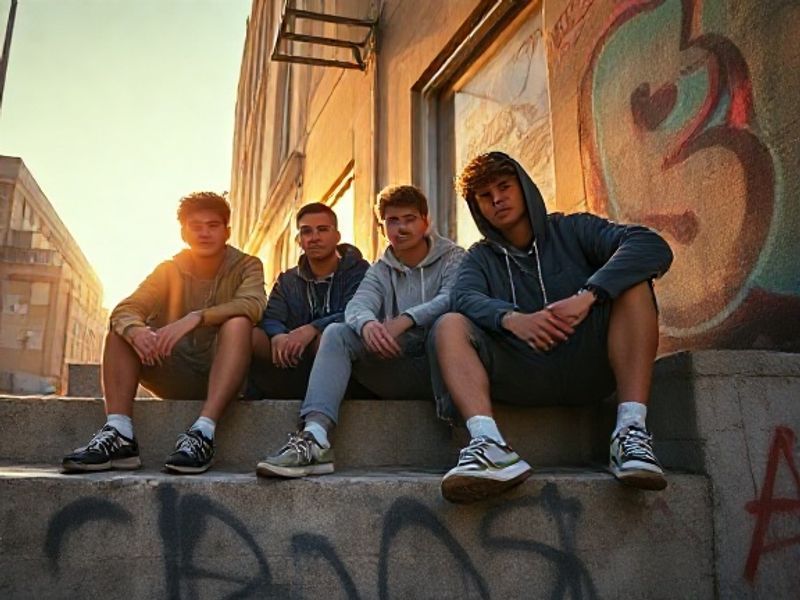Planet of the Boys: How 1.2 Billion Young Men Are Rewriting the World Order—One Meme at a Time
Welcome to the age of the boys—yes, those boys. Not the Netflix superheroes or the prep-school rugby squad, but the planetary swarm of young males aged 15-30 who now constitute history’s largest single demographic bloc. The UN calls them a “youth bulge.” Economists prefer the more market-friendly term “demographic dividend.” Development workers whisper the less printable one: “ticking time bomb.” Whatever label you choose, 1.2 billion testosterone-powered humans are roaming the planet, armed with smartphones, half-baked degrees, and a level of economic expectation that would make Marie Antoinette blush.
From Lagos to Lahore, São Paulo to Sanaa, the boys have replaced the weather as the default topic of small talk: too many of them, too few jobs, and far too much algorithmic outrage to scroll through before breakfast. In India, one enters the workforce every three seconds, a conveyor belt of ambition wrapped in Nike knock-offs. Across the Sahel, they’re herding goats one season and WhatsApp militia recruiters the next, because goat futures are notoriously bearish. Meanwhile, in the post-industrial West, they’re rage-posting in their parents’ basements about the Great Replacement while DoorDash handles caloric logistics. Different zip codes, same algorithmic drip-feed of grievance. Globalization’s greatest gift turns out to be synchronized disappointment.
The macro numbers read like a parody of central planning. By 2030, Africa alone will host 375 million boys looking for a paycheck that probably doesn’t exist. Asia already has a surplus the size of the U.S. population, most of them better educated—and therefore more indignant—than their fathers ever were. Latin America’s boys are fleeing north to pick fruit for TikTok-addicted millennials who’d rather die than pay $3 for an avocado. And Europe? Europe imports them to care for its elderly, then acts surprised when some decide that jihad beats bedpans. Nothing radicalizes a young man faster than being told he’s “essential” but paid like a Groupon.
Policy responses range from the imaginative to the suicidal. Saudi Arabia’s answer is Neom—a $500 billion air-conditioned hallucination where boys can rave on MDMA while the crown prince reinvents monarchy as management consultancy. China has opted for the “lying flat” crackdown, deploying state-sponsored rap videos urging youth to “struggle gloriously” in iPhone factories. The EU funds mindfulness apps in Arabic. Washington simply pretends the boys will evaporate if the Wi-Fi is fast enough. Spoiler: they don’t. They migrate, mutate, and occasionally detonate.
Yet dismissing them as a security problem misses the punchline. These boys are also the most efficient global distribution network ever devised. A meme born in a Manila dorm hits Munich beer halls before Merkel finishes her morning briefing. K-pop stans can crash a Dallas police app faster than the NSA. And when the boys decide a commodity is undervalued—GameStop, crypto, or, who knows, canned beans—they move markets like the Medici with Robinhood accounts. Wall Street calls it “volatility.” Everyone else calls it Tuesday.
The tragedy, of course, is that most of them just want what their grandfathers got by accident: a job that pays for a spouse, a fridge, and the illusion of progress. Instead, they inherit gig platforms that treat them as sentient USB sticks and democracies that feel like season finales written by the same hacks who ruined Lost. Climate change merely adds production value to the apocalypse: if the planet burns, at least the trailer will go viral.
So here we stand, 195 anxious nations trying to parent 1.2 billion sons who’ve already figured out the Wi-Fi password. The future belongs to whoever can turn that restless energy into something more profitable than nihilism. Spoiler alert: it won’t be the guys still pitching tax credits and coding bootcamps. More likely, it’ll be the first politician charismatic enough to weaponize hope without actually providing any—an Elon Musk with better hair and a body count.
Until then, keep your head down, your VPN on, and remember: the boys aren’t coming. They’re already here, refreshing the page.







